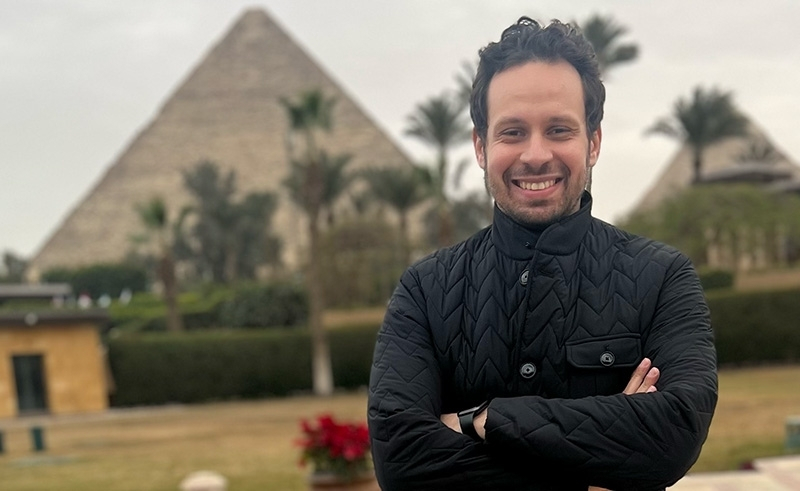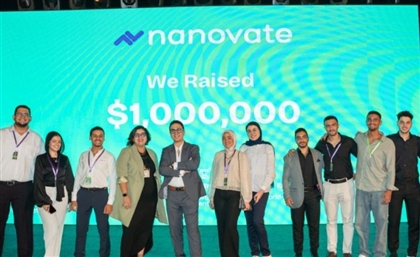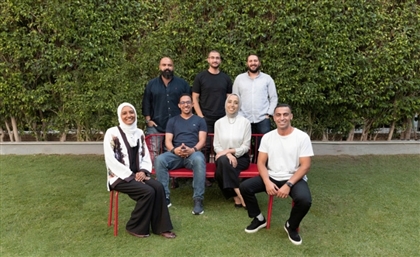Amwal.ai Can Help You Invest Without Having to Become a Finance Bro
We speak to founder and computer engineer, Mohamed Ameen, on how Amwal uses a custom-built algorithm to help real people invest without the financial jargon.

“Money doesn’t sleep,” Gordon Gekko once sneered in Oliver Stone’s operatic ode to capitalism. But for Mohamed Ameen, it wasn’t sleep he feared losing: it was clarity. When Ameen landed in Germany in 2018, he was not the kind of immigrant who arrived with wide eyes and empty hands. He had already worked for several years in Cairo, where the habit of setting aside a slice of each paycheck, modest though it may have been, had been a habit so ingrained in the culture. Cairo, with its spiraling inflation, teaches a person early that money unguarded is money undone. But it was in the rigour of the European financial system that Ameen encountered a more cryptic adversary - the institution itself. He wanted, simply, to grow his savings. Just enough to hedge against what he already understood well, the invisible tax of inflation, which gnaws at the value of idle cash like rust on iron. What he found, instead, was a labyrinth.
In Germany, as in much of the Western world, the official pathways to investing in the stock market forked into two equally unsatisfactory roads. The first was to open an account through a traditional bank, staid, established but at a price, up to two percent in annual fees, with a minimum threshold of EUR 2,000 per year. Ameen, a careful man, calculated the math. He realised that for someone just entering the arena of investing, those fees sting.
The second path led to direct stock trading, a democratic gateway that promised freedom and transparency, but came shackled with a different burden, volatility. He read up on ETFs, particularly the S&P 500, an index fund that tracks the performance of 500 of the largest companies listed on US stock exchanges, long celebrated as a stable, long-term bet. “You saw what happened to it in March 2020, when the pandemic sent markets into a tailspin,” Ameen tells StartupScene. “Investing without knowledge is like jumping into the sea because others are swimming, somewhere between delusion and faith.”
There was, too, the lure of platforms like eToro, with its tantalising promise of "social investing", a kind of crowdsourced capitalism where one could copy the portfolios of seasoned investors for a small fee. Ameen found two red flags, one, the moral unease of funding an Israeli-founded company, and two, the uneasy realisation that mimicking someone else’s moves is not the same as understanding your own, based on your needs.
So, Ameen decided to build his own. He enrolled in a master’s program in finance, after already pursuing one in computer science and machine learning, and began to engineer a solution to a problem that started with something other than a startup pitch. “ It started with me asking: How does someone like me invest wisely, ethically, and with transparency?” Ameen recalls.
The answer became Amwal.ai.
Amwal (Arabic for 'funds') was not designed for venture capitalists or day traders, but for the cautious, the curious, the in-betweeners - for people like Ameen himself - in 2018. It is, at its heart, an AI-driven investment platform that seeks to collapse the walls between expert-only financial management and the everyday saver Ameen didn’t invent machine learning. But he saw that, in the right hands, it could do more than just automate trades or chase trends, it could provide structure in a system built to confuse. The architecture of Amwal’s model reflects a hybrid sensibility, deeply technical on the back end, with models parsing macroeconomic signals, news sentiment, market data, and risk vectors, but ultimately human in the way it presents the results. Portfolios are tailored to goals and risk levels, not just profit curves. Users are nudged to invest, yes, but also to understand.
Money should not feel like a casino. "When you leave your money in cash, it’s losing value every day, not just in Egypt, but everywhere," Ameen explains. "That’s how the economy is built. The solution is to put this money to work."
That line, “how the economy is built,” sounds almost offhand - but it’s not. For Ameen, the question of money’s erosion isn’t an esoteric economic concept. It is, rather, the silent architecture of modern life. Inflation, that gradual thinning of the currency’s muscle, is often painted as an evil in disguise. But as economists from Keynes onward have noted, it is also a tool, a mechanism by which capital is urged out of dormancy and into productive circulation. “The problem is not inflation itself,” Ameen suggests, “but how ill-equipped most people are to respond to it. And in the Global South, where banking systems are brittle and trust is a luxury, the fear of losing what little one has often outweighs the logic of letting it grow.”
This is where Amwal steps in, not with promises of overnight riches, but with a plan that is, if anything, conservative. Its portfolios (conservative, moderate, aggressive, growth, and Islamic-compliant variants of each) are built using diversification principles rooted in Nobel-winning research. Users can take quick quizzes to determine when they need to invest in. Asset classes include US equities, sovereign bonds, real estate funds, and precious metals. But more crucial than the mix is the process, a dynamic, data-driven model that continuously reassesses and rebalances, aiming to stay not ahead of the market’s every twitch, but in harmony with it as well.
Behind the scenes, Amwal’s AI is not a single genius engine but a network of specialised agents. One tracks geopolitical disruptions (wars, sanctions, OPEC policy shifts), another monitors inflation indexes and central bank signals, a third digests earnings reports and sectoral performance. The final say, however, comes from a portfolio manager algorithm, trained not just to react, but to integrate. It is this choreography that Ameen sees as his most personal achievement, a system that thinks like a careful person, not a speculative machine.
At Amwal, that in-betweenness has become an asset. One of the platform’s defining features is its usability, a minimalist dashboard, mobile-first, offered in both Arabic and English, with an investment simulator that shows how small deposits compound over years. There are no trading bells, no charts with seizure-inducing movement. In a region where financial literacy is often low, where bank fees are high and trust in institutions low, Ameen is not simply offering an app. He is offering a proposition, that investment should not be the exclusive domain of the well-versed or the well-connected. That a young woman in Cairo should have the same tools as a seasoned investor in Frankfurt.
Still, Amwal is not without its skeptics. Abstracting decision-making, inadvertently encouraging passivity. Ameen acknowledges these concerns. "We are not replacing thinking," he says. "We’re helping people understand the logic behind these economical models."
He pauses, then adds, "The goal isn’t just to make money. It’s to make sense."
In 2024, as global interest rates flirted with historic highs and tech stocks once again danced between despair and hope, Amwal’s portfolios remained, if not bulletproof, then impressively buoyant. While the S&P 500 dipped by 10% in Q2 alone, Amwal’s most conservative clients still posted positive net returns of 2,3%.
Ameen does not promise riches. Amwal’s returns are steady but unflashy. But in a world where the average savings account barely keeps pace with inflation, even that modest gain is a quiet revolution. For the immigrants, the freelancers, the single mothers, and the self-taught techies, this may be enough. What's particularly striking about Ameen's venture is how it reflects broader shifts in global financial power dynamics. For decades, sophisticated financial services originated in traditional centres like New York, London and Zurich, before gradually diffusing outward. Amwal represents a reverse pattern: innovation emerging from the financial periphery, developed by someone intimately familiar with the challenges faced by savers in developing economies.
The democratisation of financial tools has accelerated dramatically in recent years. Robinhood made commission-free trading accessible to American millennials; payment apps like M-Pesa revolutionised financial inclusion across Africa; cryptocurrency platforms circumvented traditional banking infrastructure entirely. Amwal sits within this wave but with a distinctive focus on the middle ground between passive investing and active trading - what might be called "intelligently passive" management.
As our conversation winds down, we ask Ameen what success looks like for his venture. His answer reflects both commercial ambition and something more personal. "Of course, we want to grow and serve more clients. But what really drives me is imagining someone like my younger self-educated but not in finance, earnestly saving but unsure how to grow wealth, having access to tools that were once reserved for the wealthy or the specially trained."
“You invest,” he says, “not to gamble, but to protect. And to grow. Slowly, correctly, with your eyes open.”






















